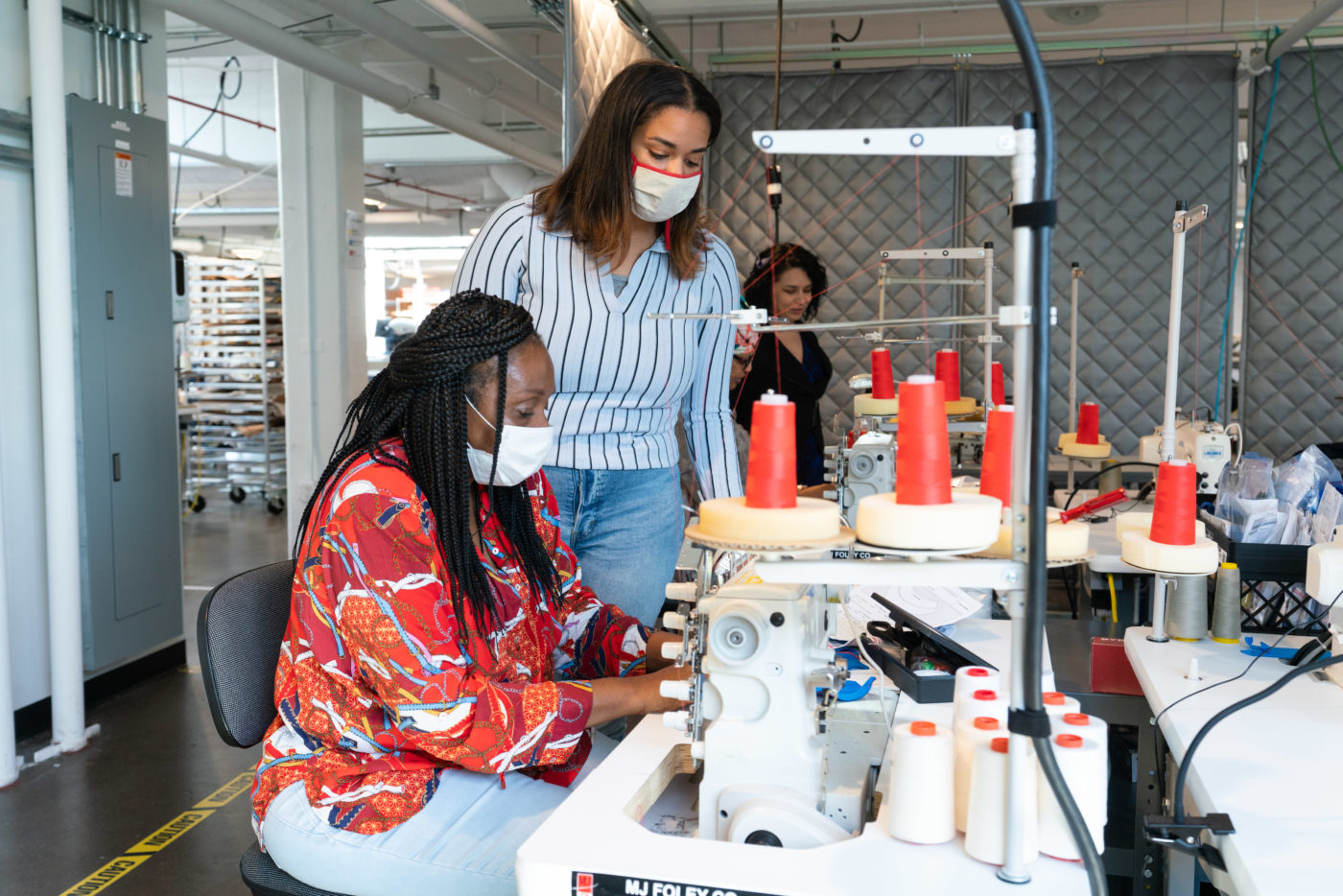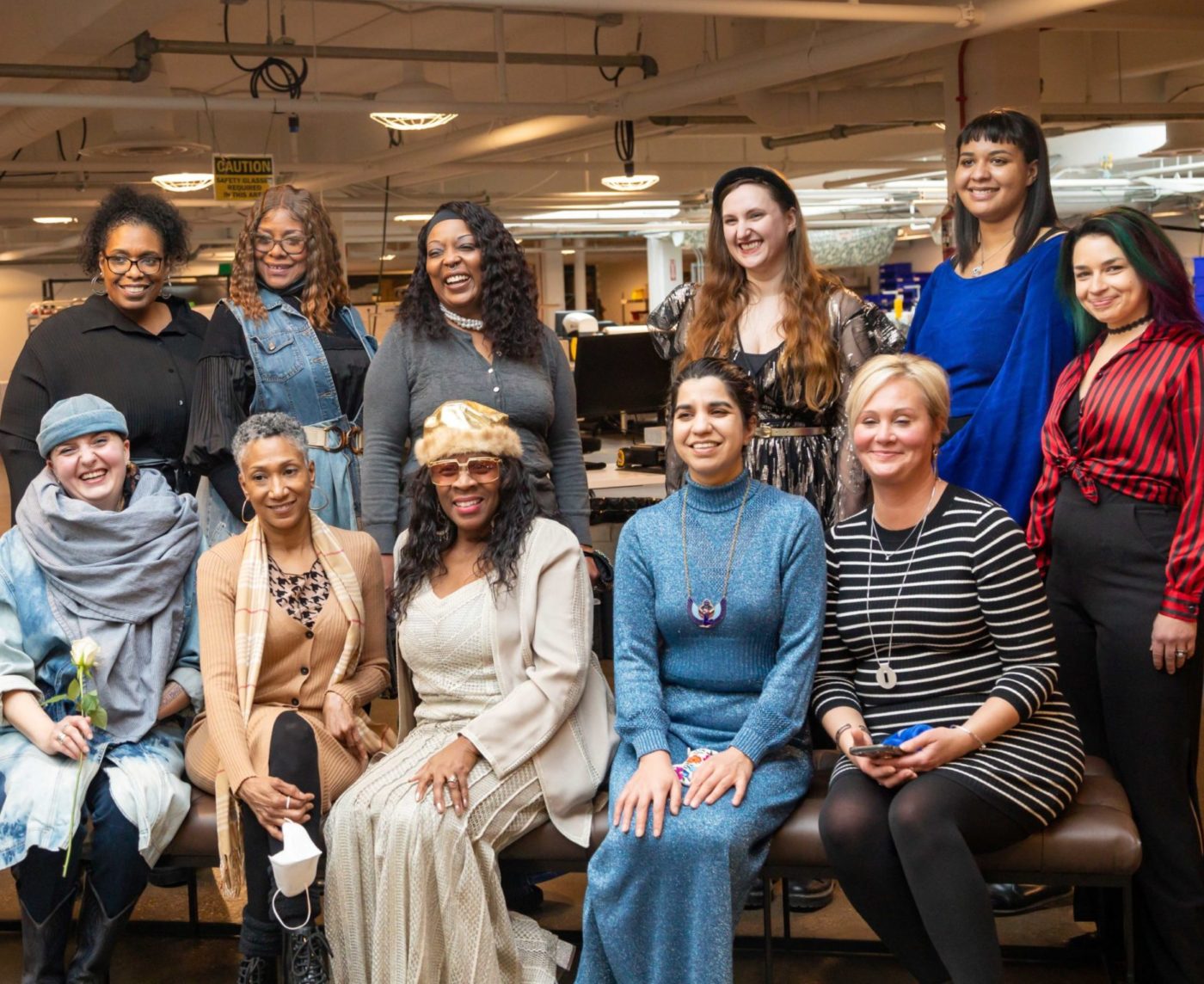“The Walters Family Foundation is helping us provide underserved communities a career path in the future of apparel.”
Jen Guarino, CEO, ISAIC
Detroit, MI (April, 2022) - Veronica Williams was living in a homeless shelter when she started the Fundamentals of Industrial Sewing and Production (FISP) curriculum through Detroit’s Industrial Sewing and Innovation Center (ISAIC). She was uncertain of her next step in life, but began to find new purpose as a student in FISP. FISP trained Veronica not only in traditional sewing skills but in advanced and emerging technologies — all paths to high-potential careers throughout the sewn goods industry. For Veronica, this opened the door to a new beginning. She aced the course and had the opportunity to become one of ISAIC’s first paid apprentices, the next step to a future with unlimited possibilities.
It’s trajectories like Veronica’s that inspire the Walters Family Foundation. The Foundation awarded ISAIC a two-year grant sponsoring 20 participants through the FISP program. The sponsorship includes full tuition and a living stipend to help underserved students support themselves as they complete the 5.5-week training course. “It’s a huge blessing because it takes money to be in training and pause everything else in your life,” says Katie O’Connor, Education & Training Manager, ISAIC. “In our first cohort funded by the Walters Family Foundation, the stipend played a big role in propelling students through the program. One hundred percent of the class graduated, which is the first time that’s happened.”

The FISP program draws a variety of aspiring sewers – from those who are new to the field and interested in a job to those have been sewing for years who have never touched an industrial machine. It focuses on engaging underemployed Detroiters and provides valuable one-to-one career counselling throughout.
After graduation, participants have the opportunity to advance to an ISAIC apprenticeship. These paid on-the-job positions pair apprentices with skilled workers whose expertise and mentoring guide them toward measurable progress, regular wage increases and highly sought-after journey person status at the end of one year.
“It’s not a course where learning to sew is the only skill you acquire,” says Jen Guarino, CEO of ISAIC. “It teaches sewers to be thinking sewers. They get comprehensive knowledge — from how to read a tech pack to how to communicate with a factory. Students learn what it takes to get something manufactured.”
These skill sets are highly prized in a manufacturing city like Detroit. In December, 2021 alone, there were over a hundred positions open for industrial sewers in Michigan. Historically, Detroit has been a hotbed for manufacturing -- everything from workwear to automobile seats to boat covers. Now, workers in those jobs are aging out of the profession and getting ready to retire. ISAIC’s new pipeline of workers are learning innovative futuristic practices that will propel their careers forward.
“We trial new technologies to make things more sustainably, more competitively and waste-free,” says Guarino. “We believe that as this industry grows, the people we're training are positioned to be the masters of that new ecosystem.”


